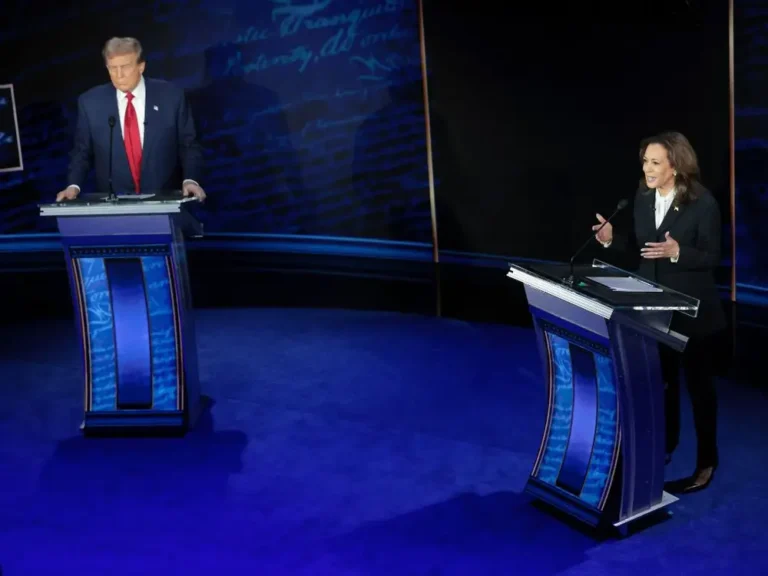Facebook is the top social-media platform for millennials and Gen Z to shop on. Here are 4 other takeaways from a new 26-page report.

- According to a new survey, Facebook is the most popular platform for millennial and Gen-Z consumers to buy products.
- Traackr, an influencer marketing platform, surveyed 1,000 US social media users for the study.
- Here are four more key findings from the study.
According to a new survey of US social-media users, Facebook is the platform where millennial and Gen-Z consumers are most likely to purchase a product.
Traackr, an influencer marketing platform, polled 1,000 US consumers about their social media habits, from posting to viewing content to purchasing products. According to Pierre-Loc Assayag, founder and CEO of Traackr, the survey population included millennial and Gen-Z consumers with the goal of understanding how the space of influencer marketing is changing.
Here are five key takeaways.
1. YouTube is the most popular platform for creator content consumption, followed by TikTok.
YouTube was the most popular platform for consuming content created by creators and influencers among Traackr users.
“YouTube has been the slow and steady platform in the turmoil that social media has been over the years,” Assayag went on to say. “They’re not the fastest to release new things, but they do them with a purpose and the execution tends to be well done.”
TikTok was the second most popular app, followed by Instagram, Facebook, and X (formerly Twitter).
These rankings shifted when age demographics were considered, according to Traackr. For example, among Gen-Z consumers, Snapchat has surpassed Facebook as a top five platform for content consumption.
When it came to posting content, however, YouTube was surpassed by Instagram as the most popular platform among all consumers polled.
2. The most engaging content category across all platforms is short-form video.
Given TikTok’s rise and nearly every platform’s focus on the medium, it should come as no surprise that short-form video is the most engaging content category on social media right now.
According to Traackr, 75% of users said that content under three minutes long was the “most engaging.”
“The fact of the matter is that short-form video offers to platforms and creators a lot more signals on what the consumer is interested in than the long-form video,” Assayag went on to say. “If you watch a video for five minutes, I get one strong data point on what you enjoy, but if you watch 30 short-form videos and you decide to discard 20 of them after half a second, but you watch the other 10, it’s a much better signal for me as a brand manager, as a platform.”
Photos were the second most engaging content type, followed by longer-form videos that lasted more than five minutes.
According to Traackr’s survey, the following are the seven most engaging content categories:
- 3 minute short-form video
- Photographs
- Long-form videos (more than 5 minutes)
- Live streaming
- Posts with text
- Personal messages
- Chat rooms for private use
3. Facebook is the most popular platform for product purchases, while YouTube is the best for product reviews.
While Meta has reduced the availability of some social-commerce tools (such as live shopping and the Instagram shop tab), people continue to buy things on Meta-owned Facebook and Instagram.
TikTok and YouTube have also increased the prominence of their respective shopping features. Both platforms trailed Facebook and Instagram in terms of social commerce, but outperformed Meta-owned competitors in terms of product reviews and information.
TikTok was more likely to rank first in terms of Gen-Z purchasing power as a platform where younger consumers bought products.
4. More than half of consumers are more likely to buy a product if an influencer recommends it or simply posts about it.
Approximately 61% of consumers said they were “somewhat likely to be persuaded” to buy a product if an influencer posted about it.
In addition, if a trusted influencer recommended a product, 53% of consumers said they were “somewhat likely” to buy based on that influencer’s recommendation.
The same is true for social-media platforms that influencers recommend or use — Traackr discovered that 57% of consumers would be “somewhat likely” to try a new social-media app “if an influencer that they know and trust posts there.”
Approximately 56% of consumers said they were “somewhat likely” to buy a product from a brand owned by an influencer or creator they follow.
5 Consumers are still hesitant to pay for influencers’ exclusive content.
Many creators have turned to exclusive, paywalled content to generate income in lieu of brand deals, product sales, or ad revenue.
Some people use Patreon or Substack, while others have had success with OnlyFans or selling online courses through platforms like Kajabi or Teachable.
However, only 41% of consumers “somewhat agree” that they would pay for exclusive content from a social media influencer.






